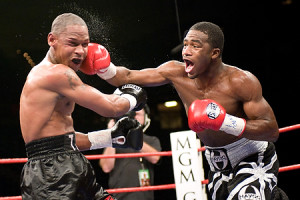Those of you who clicked this post after seeing the picture might think it’s a blog about the NFL’s quarterback protection policies, and my take on a biblical perspective on the matter.
Well, not really. If you are curious about my opinion, I’ll summarize it with this: I can see the concern to protect players who are playing a game (not intentionally risking their lives). But, I’m a Niner’s fan. Obviously, I’m upset that this call cost them the game, and the physics seem to suggest there really wasn’t anything else a defender could have done. End of story.
If that’s all you wanted to think about, you’re done. But, I think what I really want to challenge you to think about will be far more rewarding.
Whether we’re talking football, basketball, soccer, golf, badmitton, curling… or even the business workplace, the sales floor, the board room, the streets, or high school hallways, there’s competition. No one can argue how deeply entrenched competition is in the human psyche, and the fabric and workings of society. All societies.
So, be ready to think about this: Competition, of all kinds, is ungodly.
Let’s start our discussion with Merriam Webter’s help:
com·pe·ti·tion noun \ˌkäm-pə-ˈti-shən\
“ the act or process of trying to get or win something (such as a prize or a higher level of success) that someone else is also trying to get or win : the act or process of competing”
Millard Erickson, in his systematic theology, writes:
“Sin also has massive effects upon the relationships between humans. One of the most significant is the proliferation of competition. Since sin makes on increasingly self-centered and self-seeking, there will inevitably be conflict with others.”[1]
Erickson goes on how to explain, although every contest has a winner and a loser, because the outcome always leaves one wanting, there really are no winners. War is the ultimate, and most devastating example of this conflict.
But, I think I would press Erickson’s definition further. He suggests that sin has increased competition. However, it seems that sin must be the very genesis of competition. Before the Fall of Lucifer, could competition have ever existed? In a Utopic Eden, where everything from the earth’s crust and waters to microorganisms and mankind were created “good,” all operating in their properly created roles in giving their Creator glory, who, or what, was there to compete against? Competition requires an opponent. It requires an adversary. Before the Fall of Lucifer and the fall of man, or even before creation, was God ever in competition with himself? Thus, competition does not exist because it is grounded in the character of God. God is not the author of competition.
Furthermore, Erickson’s statement seems to suggest that it is self-centeredness that makes competition what it is. Our dictionary definition suggests the same. But again, I would take this further. It seems that you could be in competition, even if personal gain and pride were out of the picture. The reward of competition need not be the attaining of a prize. It can simply be to see the defeat, demise, or destruction of your opponent. As you sit down in a three point stance, sweat beaded atop your eye-black, your ice-cold stare, tunnel-visioned and latched onto your opponent, with the pressurized vigor of your coiled strength ready to be unleashed at the hike of the ball to “flat-back” your opponent… this motivation and sensation, which I’m sure many a male and female athlete can recall, and if we’re honest, even savor, is also manifestation of competition at play.
So, all you Tim Tebow’s and Shaun Alexander’s. It’s time to hang up the cleats. If we take the Christian life of sanctification seriously, how can we justify participation (and, the commitment of one’s entire life, if you are a professional athlete) in any competitive activity? Sports to sales, social status to board games, these must all be ruled out.
Or… are they? It is an unsatisfactory to say “well, if you shoot hoops, or sink holes in one, with a good heart, and not with selfish or destructive intentions, its fine- it’s all about your heart.” The best starting point is to recognize that, although competition is not in God’s character, redemption and perfection is. That being said, there are many things that did not occur or exist before the Fall (either of angels and of men). Competition is one of the things in that list. And, ever since, competition must exist, whenever there are opponents. And where as God and his team (the church) are not in it to selfishly win a prize, He, and we, are in it to redeem, restore, to resurrect and to recreate what was once lost and broken.
Because there is competition, there will be a winner and a loser. In the cross, Christ assured that victory, and thus, it is more than appropriate to identify God as a vanquisher and champion. This is the only route by which all things that are rooted in his character can be realized in his created order.
So, the real question we are begging for- can a Christian be justified in playing sports? Although the temptations to competing out of broken motives are intense, sports are an arena, much like the arena of life, where each player has the charge of pursuing what is virtuous, and achieving what is good. In the plan of history, this is the realization of the Kingdom of God and the redemption of the world, which creation now groans for (Rom 8:19-21). Sports, miniture microcosms of this reality, with arbitrary and man-crafted rules, in a way simulate this. In sports, there is a prize- a cup, a crown, a trophy. But the truly virtuous and gospel-driven person competes not to defeat. She competes not to take the prize. He competes to exercise the virtue of striving for perfection in his form, his team, and, the scoreboard.
Paul does use the imagery of athletic rewards, and tells us of the crowns to be attained. However, in light of our process of reconciling a believer’s participation in competition, it seems best to understand these pictures not as saying that the Christian can compete and strive to win salvation and its benefits as the be-all-end-all themselves. The true goal and end of the Christian life is to lay hold of CHRIST, and with it His Kingdom, His plan, and His righteousness (Phil 3:12-14). Thus, what is pursued is not selfish gain, but the realization of God’s promise to redeem and restablish paradise, the reclaiming of what was once lost.





7 Comments
Leave your reply.